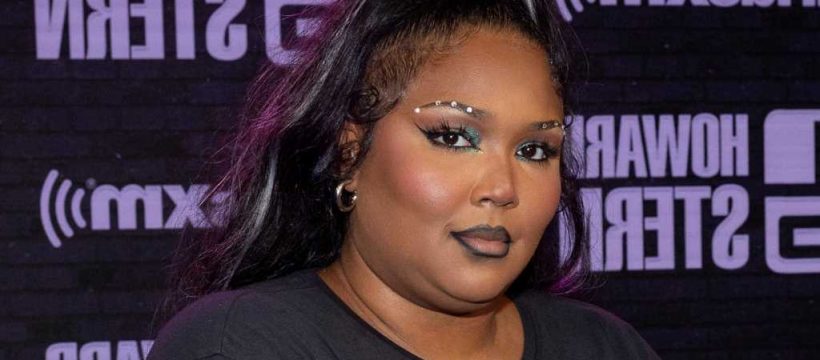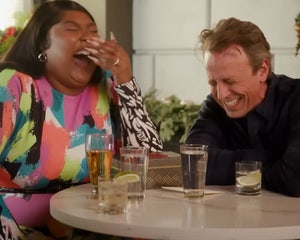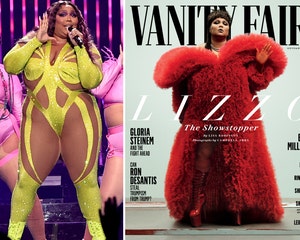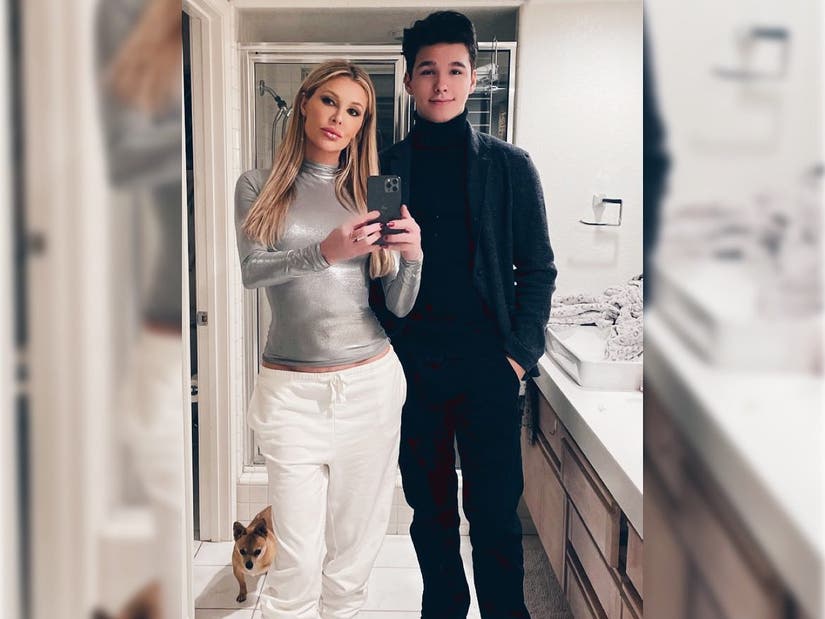The "Truth Hurts" singer says it started with "real outrage from truly marginalized people," but it's gotten twisted.
Cancel culture has become an unavoidable part of our … well, culture. Now, we can count Lizzo among the movement’s latest critics, though she’s not against the original idea behind it.
Admitting that her comments came at a “random time,” as there was no precipitating cancel or moral outrage she was responding to, the “Truth Hurts” singer nevertheless weighed in on the increasingly controversial concept.
Lizzo and Seth Meyers Play Truth or Shot, Leave Inappropriate VMs in Funniest 'Day Drinking' Ever
Explaining that she was speaking out because “it’s on my heart,” Lizzo took to Twitter to express her idea that “cancel culture is appropriation.”
She went on to explain herself by noting that “there was real outrage from truly marginalized people and now it’s become trendy, misused and misdirected.”
She then dropped another one of the buzzwords that’s become associated with cancel culture, by concluding her thoughts, “I hope we can phase out of this & focus our outrage on the real problems.”
One of the most common criticisms of current cancel culture is that it’s representative of faux outrage, or performative outrage as people like to take their “outrage” to social media.
10 Stars Who Got Real About Dealing With Cyberbullying
On top of that, there’s the growing sense that it seems if everything is offensive to someone, then everyone will eventually get canceled. But, as pointed out by an op/ed by Charlotte Colombo for NBC News, being called out for something isn’t necessarily the same as being canceled.
Lizzo herself came under fire this past summer for lyrics deemed “ableist” on her track “GRRRLS.” After the backlash, Lizzo removed the slur, saying she would “never want to promote derogatory language.”
“As a fat black woman in America, I have had many hurtful words used against me so I understand the power words can have (whether intentionally, or in my case, unintentionally,” she noted in her apology.
“This is the result of me listening and taking action,” she continued. “As an influential artist I’m dedicated to being part of the change I’ve been waiting to see in the world.”
Lizzo Hits Back at Criticism Over Revealing Costumes, Accusations She Makes Music for White Audiences
Colombo seemed to express a similar sentiment in her piece while describing the evolution of “cancel culture.” She notes that it originally “meant holding [someone] accountable for despicable acts they usually were only able to do because of the position of power they were put in: like Harvey Weinsten and the #MeToo movement.”
As time passed, though, “it was decided that ‘cancel culture’ meant that any minor critique of a person translated into a desire to completely ruin their life, career and to erase them from public consciousness.”
It is in this way, Colombo argues, that people are able to push back against the whole idea of “cancel culture,” or what’s now being perceived as a weapon to unfairly destroy someone over a minor offense, rather than what it’s really about, which is to hold people accountable for egregious abuses.
Colombo argues that Lizzo was never the victim of “cancel culture” even as fans (herself included) took issue with her “GRRRLS” lyrics. Instead, she was critiqued and she “gracefully took accountability, and put things right.”
Source: Read Full Article




